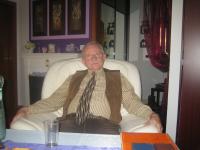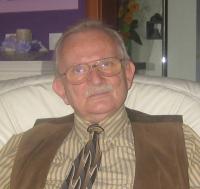Father had his sights set so amazingly clearly on getting home as soon as possible, no matter the cost, no matter the danger

Stáhnout obrázek
Ing. Richard Brhlík was born on the 28th of March 1938 in Hlohovec to the family of the artillery lieutenant Antonín Brhlík. After the declaration of the Slovak State in 1939, his father served shortly in the Slovak army. During a family holiday in February 1940, his father took him and his mother to Belgrade, hoping to join the foreign army there. The Czechoslovak officials refused to accept Antonín Brhlík and his family, however, and so the Brhlíks were forced to return to Slovakia. His father was sentenced to five months in jail for deserting during peace time. After his release in autumn 1940, he went abroad again without his family knowing it. He crossed the Balkans into Palestine, where he worked as an interpreter at the Czechoslovak diplomatic mission. He then left by boat from Suez, around Africa, to Great Britain, where he joined the Czechoslovak Independent Brigade. He underwent paratrooper training in the winter of 1943 to 1944, and in 1944 he set out to the USSR and Svoboda‘s army. He was killed on the 12th of September 1944 during the Carpatho-Dukla Offensive. His son, Richard Brhlík, lived with his mother - who never remarried - in Slovakia. Richard graduated from university and became a mechanical engineer; he also represented Czechoslovakia in basketball. He was employed in Slovnaft, he was advisor to the deputy minister at the Slovak Ministry of Culture, he worked as an assistant manager for building and development at the Slovak National Theatre, he took part in the construction of the new building of the theatre. In July 1982 during a holiday abroad he and his family emigrated. They spent the first 11 months in a refugee camp in Austria, the family then carried on to Canada. At first, Richard Brhlík earned a living as a maintenance man, he then went back to the profession of mechanical engineer. He returned to Slovakia for good in 2009. Since 2016 he lived in Piešťany, now he lives in Senica.

